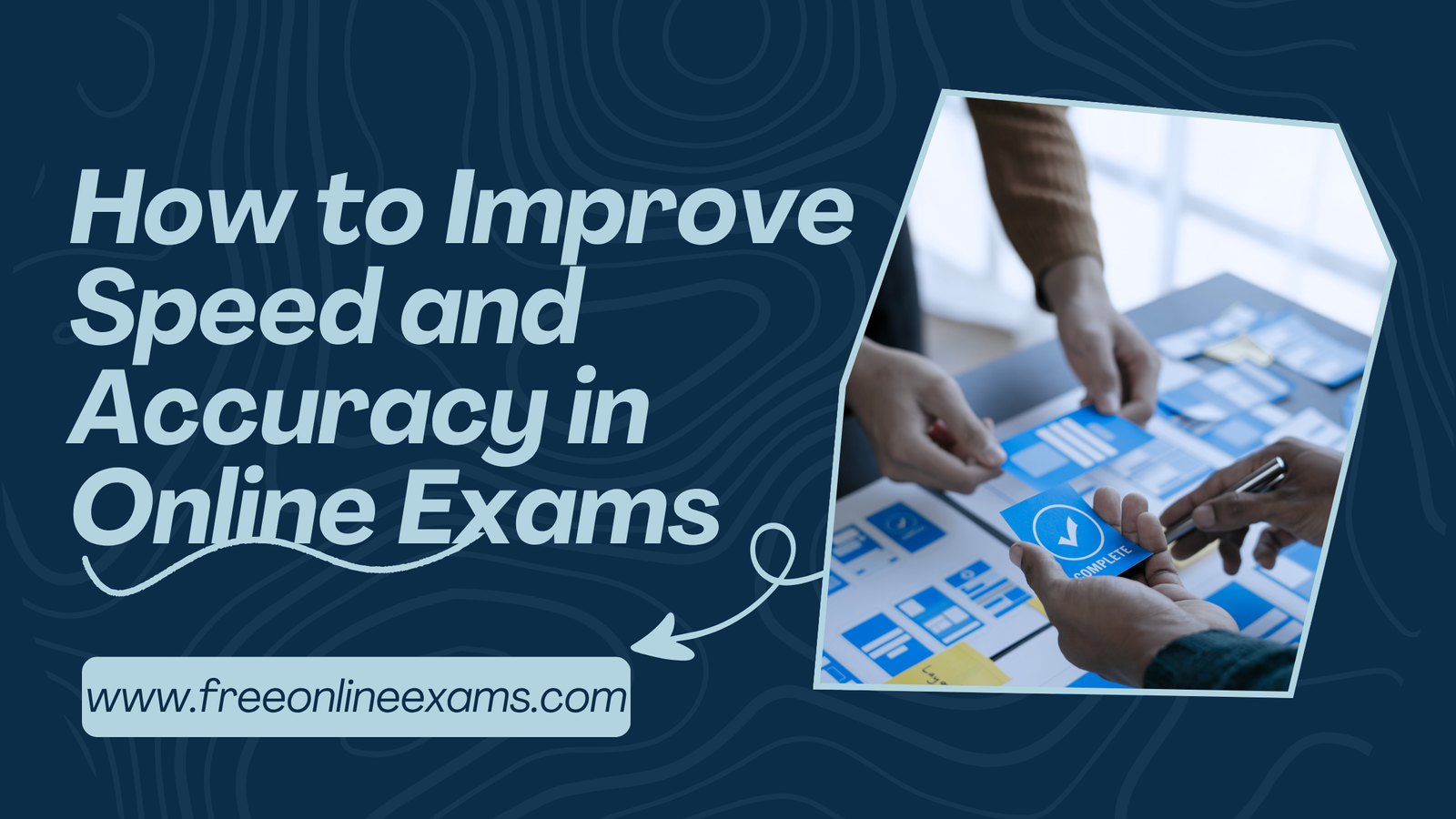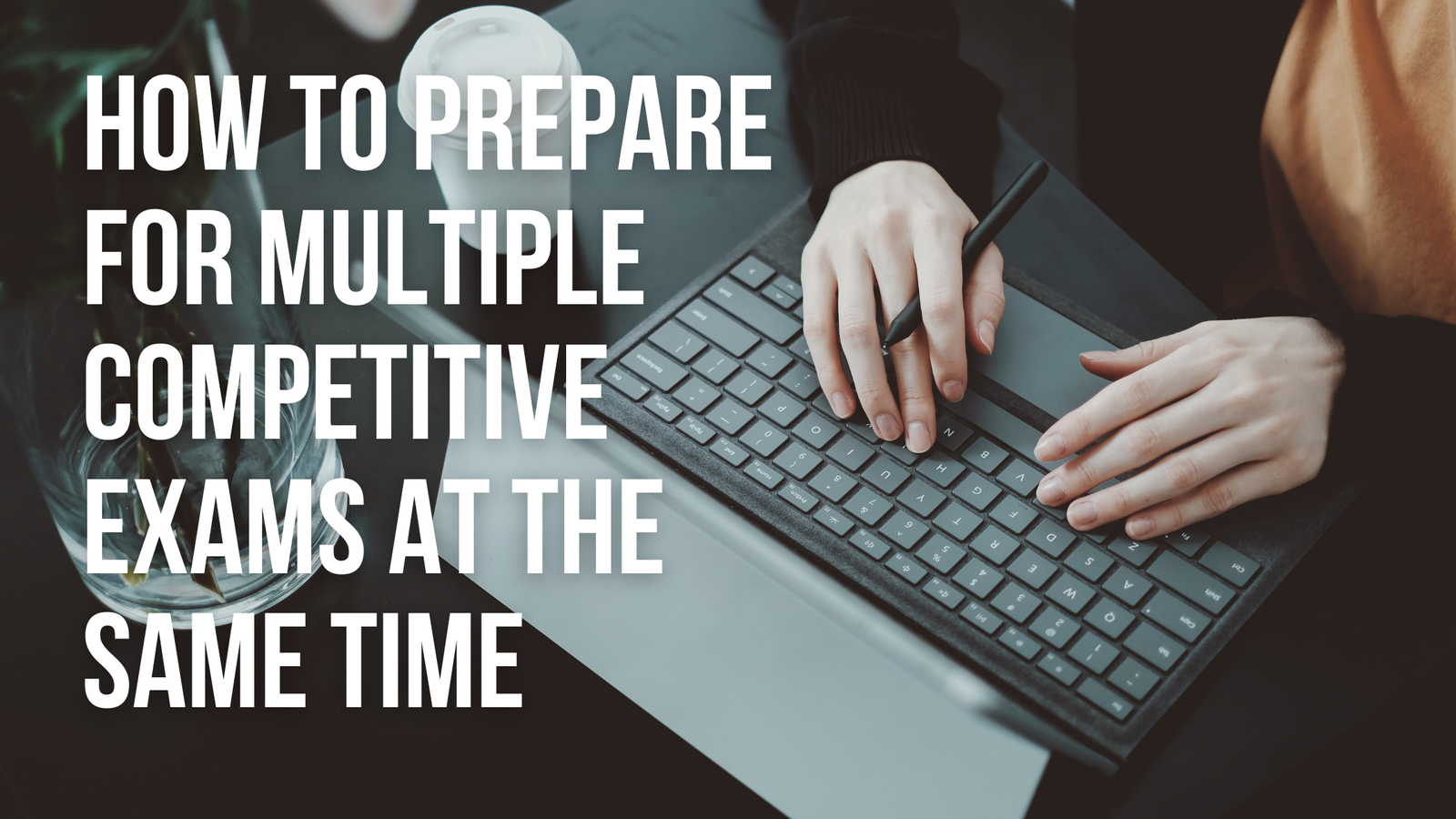In today’s digital era, most competitive exams—from SSC and IBPS to state-level and campus tests—are conducted online. While knowledge and preparation are important, speed and accuracy often become the deciding factors between selection and rejection.
You might know the answers, but if you can’t solve them fast and correctly, your score suffers. In this blog post, we’ll explore the best strategies to improve speed and accuracy in online exams, so you can maximize your score and minimize errors.
🧠 Why Speed and Accuracy Matter
Online exams are typically time-bound and objective-based. Here’s why speed and accuracy are so critical:
- Speed helps you attempt more questions within the limited time.
- Accuracy ensures that you don’t lose marks due to negative marking.
- Together, they help you improve your overall score and ranking.
Balancing both is the key to success, especially in exams like IBPS PO, SSC CGL, RRB NTPC, and UPSC Prelims.
⏱️ 1. Understand the Exam Pattern Thoroughly
Before anything else, know the structure of your exam:
- Total number of questions
- Time duration
- Sectional time limits (if any)
- Negative marking rules
- Question difficulty trend (from PYQs)
Knowing the pattern helps you plan your time allocation per section and prioritize easier questions first.
📝 2. Take Regular Timed Mock Tests
Mock tests are the most effective way to train your brain for time-bound problem solving. Here’s how to make the most of them:
- Take at least 2–3 full-length mock tests per week
- Use a stopwatch or exam simulator to mimic the real environment
- After each test, analyze:
- Time taken per section
- Accuracy rate
- Questions skipped or wrongly attempted
📍 Pro Tip: Use FreeOnlineExams.com for free timed mock tests and topic-wise quizzes.
🧮 3. Master Shortcuts and Tricks for Aptitude & Reasoning
The Quantitative Aptitude and Logical Reasoning sections eat up the most time. To improve speed:
- Learn Vedic Maths tricks for faster calculations
- Use elimination method in reasoning-based MCQs
- Memorize multiplication tables, squares, cubes, and percentages
- Practice approximation and estimation methods
The goal is to reduce the calculation time and move quickly through questions without compromising accuracy.
📚 4. Practice Topic-Wise Time-Bound Quizzes
While full-length tests help with exam simulation, topic-wise quizzes are perfect for improving speed on specific areas. For example:
- 10 questions on Time & Work in 10 minutes
- 15 questions on Blood Relations in 12 minutes
- 20 English grammar questions in 15 minutes
This builds muscle memory for faster responses in the real exam.
📌 5. Improve Reading Speed for English and GK
Sections like Reading Comprehension or General Awareness can be time-consuming if your reading speed is slow. To improve:
- Practice reading editorials or articles daily
- Try skimming and scanning techniques
- Use reading apps to improve speed (like ReadTheory or Spreeder)
- Learn to identify keywords quickly in a question
Faster reading helps you comprehend and respond quickly, especially under time pressure.
🎯 6. Focus on Accuracy Through Smart Question Selection
Many students waste time trying to solve tough questions early on. Instead, adopt a smart attempt strategy:
- Round 1: Attempt only easy and confident questions
- Round 2: Try moderate ones if time allows
- Round 3: Use remaining time to attempt or review tough ones
Avoid guesswork if negative marking is involved. One wrong answer can cancel out the gain from two correct ones.
🔁 7. Analyze Mistakes and Maintain a “Mistake Book”
Improvement doesn’t come just from practice—it comes from correcting your mistakes.
- Maintain a notebook or Excel sheet
- Track: question type, mistake reason, and correct approach
- Revise this mistake log weekly
Over time, this helps you avoid repeating the same errors, increasing both your speed and accuracy.
💡 8. Use Shortcut Keys and Familiarize Yourself with Exam Interface
Online exams often allow navigation via keyboard shortcuts:
- Next/Previous question: Tab or arrow keys
- Mark for Review: Shortcut icon or key
- Submit Test: Final confirmation screen
Practice on platforms that mimic real exam UIs, so you’re not confused or slowed down during the test.
🧘♂️ 9. Train Your Mind to Handle Exam Pressure
Speed often drops under stress. To build mental endurance:
- Practice mock tests in noisy or distracting environments
- Use breathing techniques to calm nerves before the exam
- Stay focused on one question at a time; don’t think about the clock constantly
A calm and trained mind works faster and makes fewer mistakes.
✅ Final Thoughts
Improving speed and accuracy in online exams isn’t just about solving more questions—it’s about solving smartly, quickly, and correctly. Combine practice with self-awareness, work on your weak areas, and don’t skip mock tests.
With consistent effort and the right techniques, you’ll see visible improvement in just a few weeks.
Want to practice topic-wise quizzes and timed mock tests?
👉 Head over to FreeOnlineExams.com and start your journey toward exam success today!







